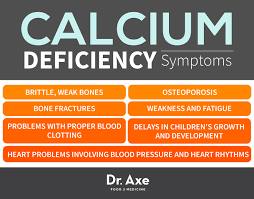Mineral Deficiency can cause Birth defects..1
Mineral Deficiency can cause Birth defects..1
My memories
Mineral deficiency can cause birth defects ...1
Posted in 2014
1... For Couples
If you have decided to have a Healthy child you should change your Normal Food to Healthy food. Then only you can have Healthy child. I am telling U from the beginning that PREVENTION IS BETTER THAN CURE. Today about 90 Million couples are giving birth to Defective children and feel Sad after seeing their child. I wish U to have Healthy child and advise you to follow Healthy habits, healthy food etc...
2.. Pregnancy and Diet
It's usually true that pregnant women are usually up-to-date on what they should and shouldn't eat. They keep a tab on their daily intake and are sure to include foods that'll benefit their kids. But there's an important mineral they may have missed out on: Iodine.
According to Web MD, many pregnant and breast-feeding women are deficient in iodine. What causes this deficiency? Researchers at the American Academy of Pediatrics believe that frequent consumption of processed foods may have a role to play here since the salt in processed food is not iodized.
Published in the British Journal of Nutrition, the study surveyed 1,026 women across the UK who were pregnant or mothers of children aged up to 36 months. Results showed that pregnant women are not eating enough iodine-rich foods such as milk and cheese, hampering adequate brain development of their babies. Iodine is required for the production of thyroid hormones, which are crucial for foetal development,
My Advise
1... It is best to get vitamins and minerals from the food you eat, but when you are pregnant you will need to take some supplements as well.
.10.... I clearly told U which nutrients required and which will be cause of defective births if lacking or more
2... Do not take vitamin A supplements, or any supplements containing vitamin A, as too much could harm your baby.
3.... Pregnancy can deplete a mother’s iron stores. Therefore, it is important to have an appropriate intake of iron to help build and maintain these stores. Low iron levels in early pregnancy have been linked to premature birth and low birth weight.
The average requirement for iron in pregnancy is 27mg a day. A mixed diet of animal and plant foods can help you achieve your iron intake. Absorption of iron is better from animal foods compared to plant sources, and the recommended dietary intakes are based on a mixed western diet.
4... Folate is a B vitamin that is needed for healthy growth and development. Its requirements are increased during pregnancy for normal growth of the unborn baby. Adequate folate intake helps to prevent birth defects in the baby, such as spina bifida.
5... Iodine is an essential mineral that we get from the food we eat. The developing baby in the womb, babies and young children are at greatest risk from a diet deficient in iodine. Iodine is needed in very small but essential amounts by the human body. Iodine is essential to the production of thyroid hormone, which regulates body temperature, metabolic rate, reproduction, growth, blood cell production and nerve and muscle function. Thyroid hormone is produced in the thyroid gland, which is in the neck.
6... Zinc is a component of various enzymes that help maintain structural integrity of proteins and help regulate gene expression, so getting enough is particularly important for the rapid cell growth that occurs during pregnancy. The average requirement for zinc during pregnancy is 9mg/day but some women will need as much as 11mg/day or more.
7... You need vitamin D to keep your bones healthy and to provide your baby with enough vitamin D for the first few months of its life. Vitamin D regulates the amount of calcium and phosphate in the body, and these are needed to help keep bones and teeth healthy. Too little vitamin D can cause children’s bones to soften and can lead to rickets (a disease that affects bone development in children).
8... The need for vitamin C is increased in pregnancy due to larger blood volume in the mother and the growth of the unborn baby. Vitamin C is important for the formation of collagen which is especially important in blood vessels.
9... Calcium is vital for making your baby’s bones and teeth. Dairy products and fish with edible bones — such as sardines — are rich in calcium. Breakfast cereals, dried fruit — such as figs and apricots — bread, almonds, tofu (a vegetable protein made from soya beans) and green leafy vegetables — such as watercress, broccoli and curly kale — are other good sources of calcium.
11... Select the food containing minerals as required to give birth to Healthy child
These are not only contain required nutrients but also regulate your breaths, blood flow etc..
Brought to U .... http://successgain.info
Brought to U .... http://successgain.info




Comments
Post a Comment